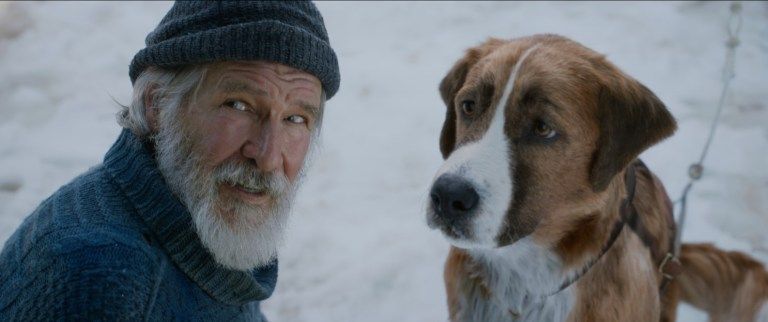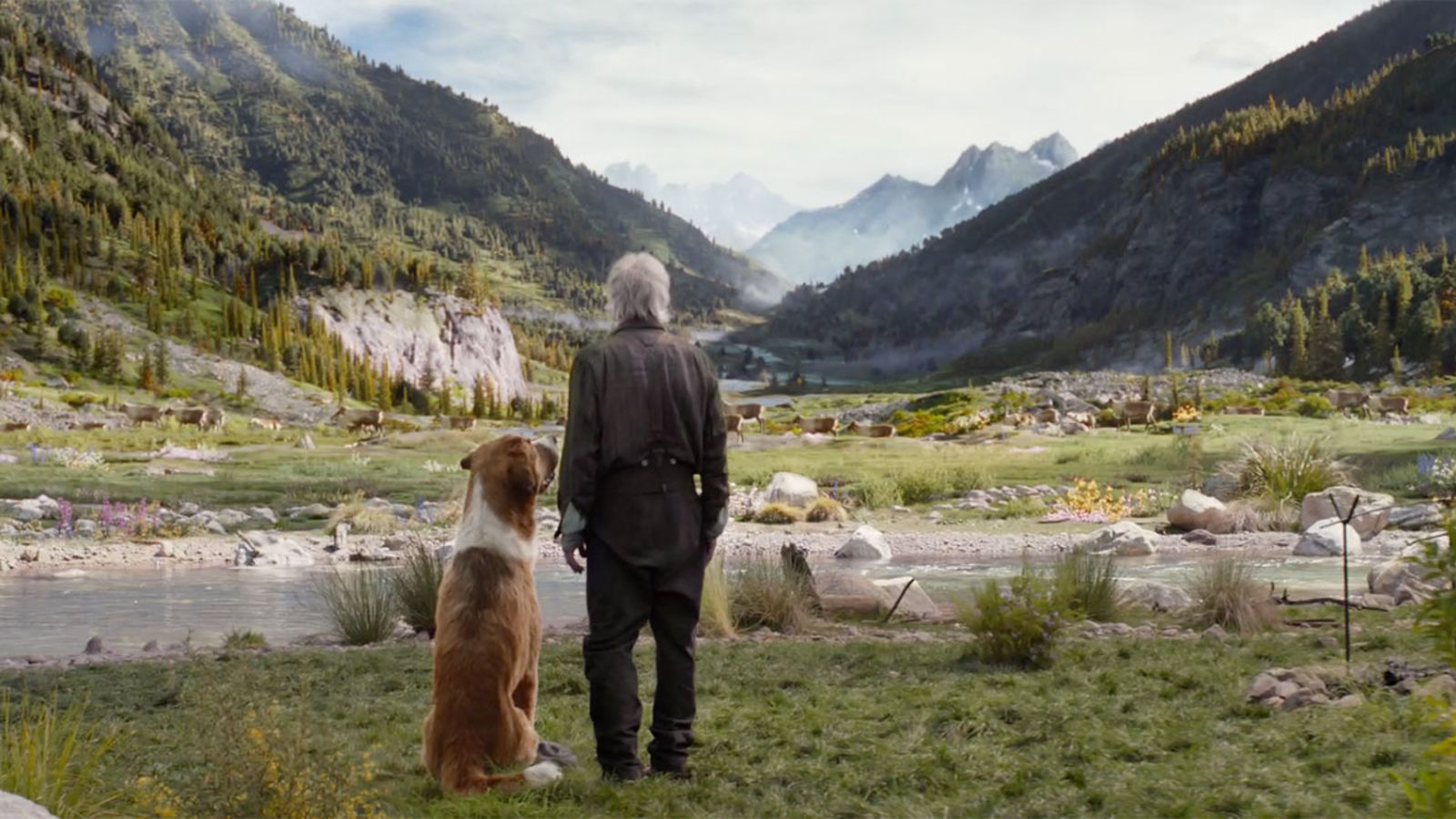
The Call of the Wild: A Conversation with Harrison Ford
From the L.A. Screenwriter collection.
Harrison Ford is one of the most iconic actors in cinematic history. From Indiana Jones to Han Solo, he has defined the archetypal hero for millions all over the world. Playing the legendary John Thornton from Jack London’s The Call of the Wild, may be his most personal project, however.
Childhood heroes and bringing a literary legend to life
One of the big themes in the film is heroism—Bucks hero’s journey. While Ford has played many iconic heroes himself, and was this writer’s boyhood hero, Ford rarely talks about his own influences and those he looked to for inspiration.
“I never had heroes,” Ford said, “No, I don’t honestly know that… I mean when I was a kid, I used to read a lot of biographies and read about people’s lives. And I remember that I had a hero when I was about 10, 12 years old and it was Abraham Lincoln because I grew up in Illinois. My parents were very interesting. I had a Jewish mother and a Catholic father and both of them had fallen away from their organized religion, but they were very interested in giving me morals. They gave me and my brother a moral context and they found their own moral context in service to others and with a belief in social justice. And that is what served as a moral compass for me as I was growing up. Others come to it in different ways.”
Like many, Ford had read Jack London’s classic book, but it had been a while. “I read it when I was in high school. It was assigned reading as part of the cannon of American literature and I was very pleased to read it at the time, but it didn’t really stick for me,” Ford said. Not having an emotional connection to the way that London had structured the story allowed the actor to have an open mind to the way that the filmmakers had re-crafted the narrative for the screen. “We took some liberties, and one of the liberties that we took I think brought something that’s important to the story, and that is to establish a kind of parallel between what was going on in Buck’s life and what was happening in Thornton’s life. In the book Thornton arrives, but we don’t know anything about him. We don’t know where he comes from. We don’t know what motivates him, really. And so we constructed a story which gave us the opportunity to see the parallel of Buck finding his destiny, if you will, and Thornton resolving his issues. As Buck is gaining the confidence and the courage to face his natural self, Thornton’s finding the courage to go back and face the life that he had run away from. And I thought that was an important emotional element,” Ford said.
Good stories and acting with the invisible
Having starred in some of the most successful franchises of all time, Ford still looks for a strong story, well executed in a script these days when choosing a project. “Look, I’m always looking for a good part,” Ford said. “I’m looking for an opportunity to bring a story to an audience and to have them find value. One of the things I think that we get from film that’s really important is the experience of being present in the context of a story and not knowing how you’re going to feel about it, but then having an opportunity to get some emotional exercise out of it, to feel our common humanity. That’s why I really encourage people to see this kind of movie in a theater with strangers in the dark.”
Ford has shared the screen with some of film’s most celebrated actors. He took the challenge of acting beside a computer-generated dog in stride. He centered on his life-long relationship with animals in order to make scenes believable.
“I’ve had dogs all my life. I enjoy being around dogs. They give me comfort and they give me pleasure and we have a good time together,” he said. “While we had no dog in the movie, we had a wonderful actor and former Cirque de Soleil gymnast in place of the dog on set. He was an emotional presence for me to relate to.”
Into the Wild
Aside from the story and the role, Ford enjoyed an opportunity to engage in a project that put him “in the wild,” to some degree (the majority of the film was shot in Santa Clarita, California). Asked why he enjoys such a deep connection to the natural world, Ford explains, “Because I’m in the presence of the majesty and the power of nature and its Creator. I just came back from a twelve-day rafting trip on the Colorado River through the Grand Canyon. No phones, no contact with the outside world. Occasionally we’d see an airplane flying over but that was it. And twelve days is enough to lose touch with the complications of who you are. And just to allow you to slip into the place you are, and it’s a powerful experience. You’re in the presence of timeless nature, and it’s magnificent. And that’s what I look for — the essential aspects of life, and not the noise of life.”
His character in Call of the Wild is perhaps more like Ford in real life than any he’s played before. “That’s the edited me,” he said. “That’s a curated collection of the aspects of my personality, my understanding, my conviction. And that’s not always what you’re dealing with in the portrayal of a character, but that’s the fit in this case. Fits like a glove.”

The secret to success in the business
Ford has inspired generations of creators through the characters he’s played and the stories he’s helped tell. He’s often asked for advice from those at various levels of the film business. He leans back with sage-like wisdom and often offers the following:
“You can put 110% of yourself in it and not do the job, because it’s not about you. It’s about the story. It’s about creating a character and behavior that articulates the story. It gives the audience the opportunity to see something happen in front of them. And the audience can be open and vulnerable, and they don’t need that much guidance. They don’t need to be hit over the head. They just have to know what the story is. Why we’re here, how do we feel about this?
“But when people in the film business ask me, ‘How do you figure this out?’ I say, ‘It’s very simple. Just think about one thing. Be useful. Be useful to the telling of the story, to the dolly grip, the guys moving the camera. Work with it, don’t work against it. Don’t think it’s all about you. So be useful. Make yourself useful. It’s not all about you.’”
*Feature Photo: Harrison Ford and Buck in Call of the Wild / 20th Century Fox (2020)

